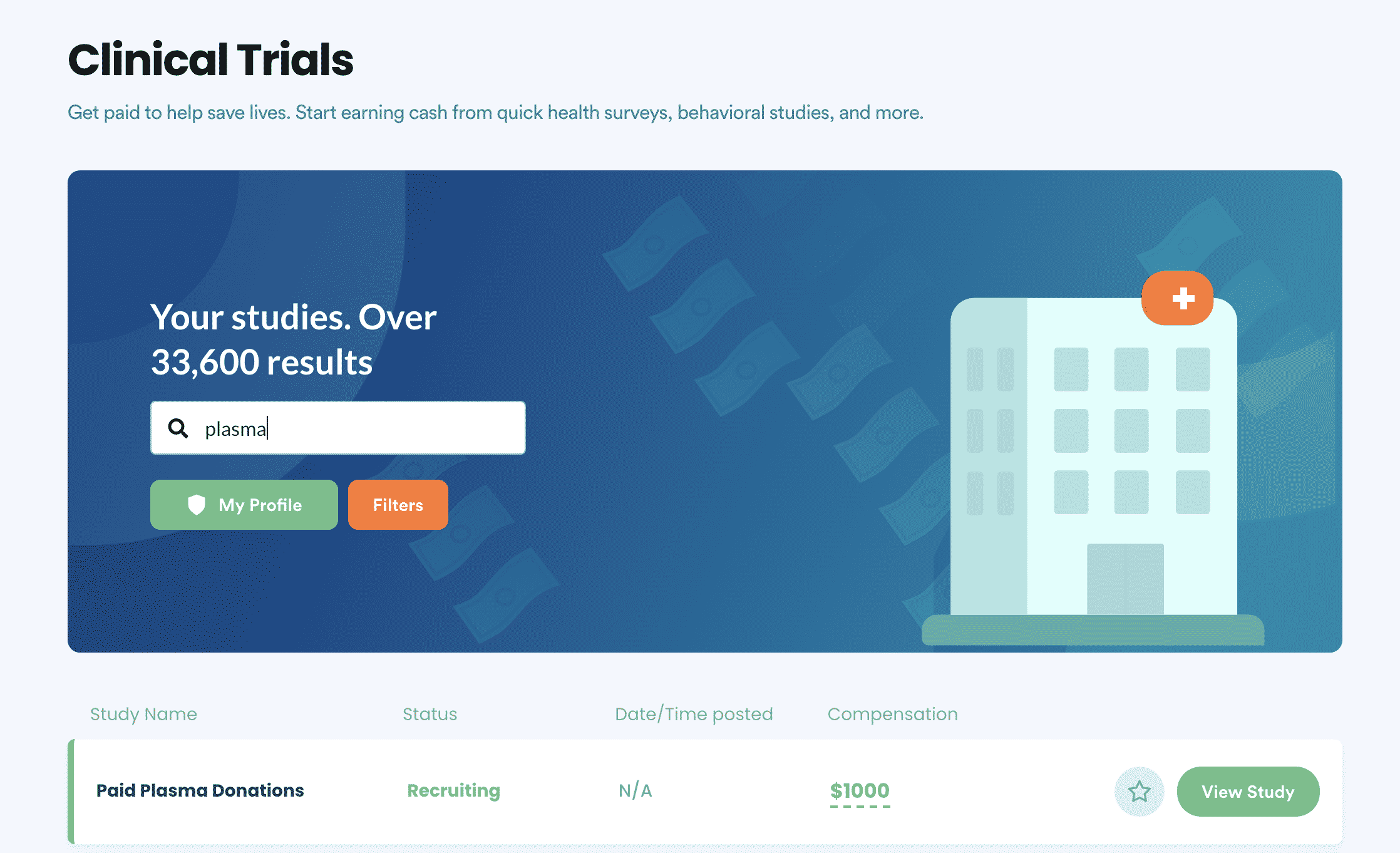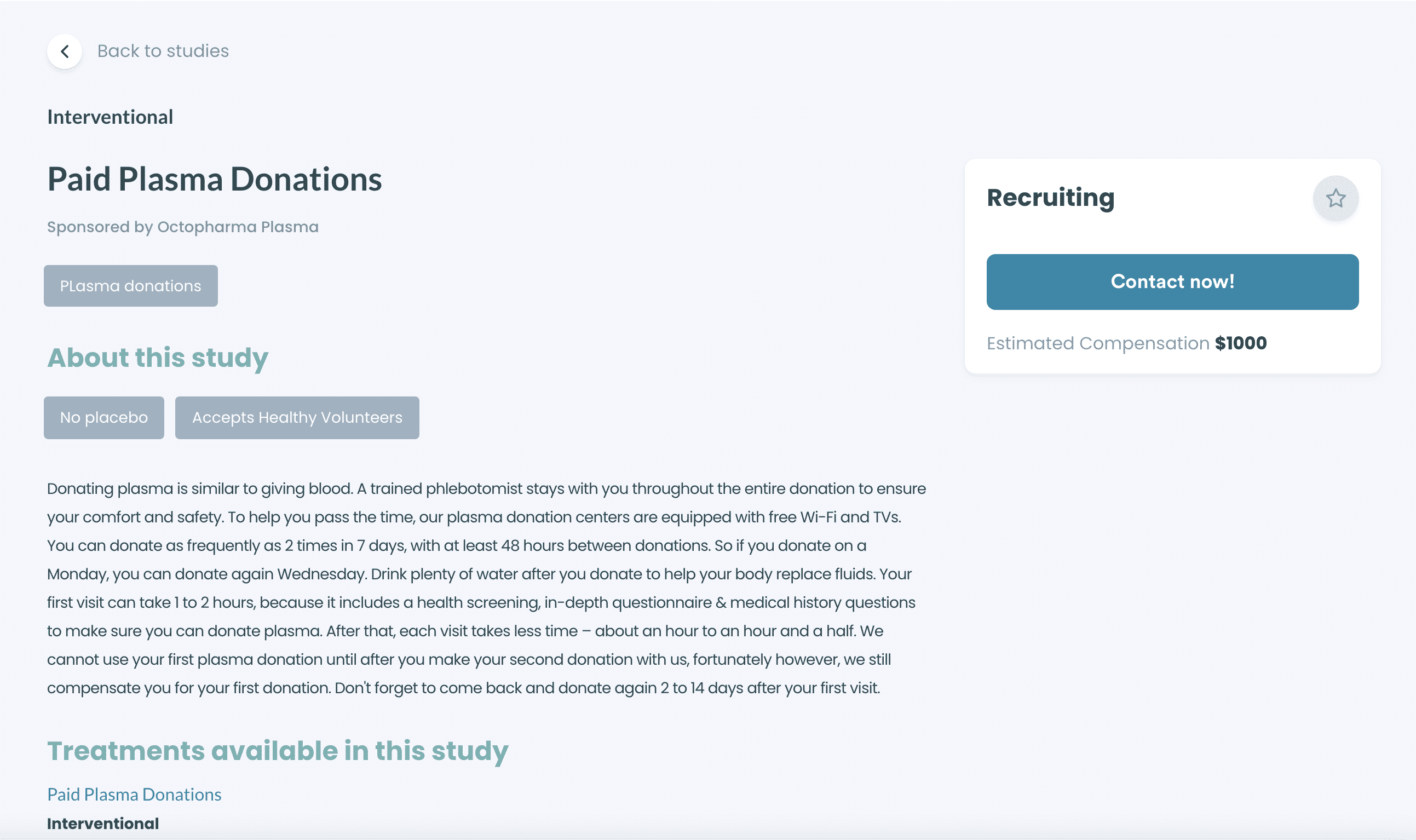Can You Donate Plasma If You Are Overweight
Donating plasma is different than donating blood. Plasma is an important part of some medical treatments, and donations are always needed. Plasma is a component in blood.
To donate, medical professionals will take your blood out, separate the plasma, and then put your blood back in your body. It is more involved than regular blood donation, and therefore is compensated accordingly.
Some donors can earn up to $1,000 a month donating plasma, but to donate you'll need to be approved. That means navigating various eligibility requirements across different kinds of plasma donation centers. You may be wondering if you can donate plasma if . DoNotPay can help determine your eligibility.
What Are the Requirements for Donating Plasma?
There are different types of plasma donation centers. The Red Cross collects donated plasma, but there are also private donation centers. Each center may have its own requirements, and eligibility requirements also vary from state to state. You might even be wondering if you can donate plasma after getting the Covid vaccine. According to the Donating Plasma, these are their general requirements for plasma donation:
- Must be in good health and pass a physical examination
- Must weigh at least 110 pounds
- Must be at least 18 years old
- Donors need to be able to answer questions about their medical history
- All plasma donors are tested for transmissible diseases, such as HIV and hepatitis
- Some centers may require donors to stick to a high protein diet
Individuals under 110 pounds cannot donate plasma, but what about people who are overweight?
Can You Donate Plasma if You Are Overweight?
| Upper weight limits are not usually stated in donor requirements | This does not mean overweight individuals will be approved as donors. |
| Being overweight shouldn't affect your plasma donation eligibility | Individuals who are obese may not be able to donate plasma if they cannot safely use the equipment or if they are not approved following the physical exam. |
| Your weight shouldn't keep you from attempting plasma donation | Donors are in high demand, and plasma donation can be lucrative. The medical personnel in charge of the donation center you choose will work with you. They want donors as much as you want to donate, so if you can donate safely you'll likely be approved. |
Keep in mind:
- Donors need to pass a physical exam. The clinician performing the exam may not pass overweight individuals if they feel donating would be unsafe .
- Hospital beds and equipment used in donation centers have weight limits. According to some estimates, those limits are around 400 pounds.
- A diet high in fat may make donating plasma more complicated, according to Women's Health Magazine. It's best to avoid fatty foods right before donation.
How to Donate Plasma on Your Own
Before getting approval to donate plasma, you'll need to do a lot of research. There are many options when it comes to where to donate. Different centers offer different compensation rates. It's important to choose the right one.
Find a Center
The first step to donating plasma on your own is to find a center. There are a few types of centers, and there may be more than one in your area:
- Private plasma donation centers
- Red Cross affiliated centers
- Donation centers attached to a hospital or health system
The type of donation center you choose could affect your compensation and the frequency with which you are allowed to donate.
Check Requirements
Donor requirements don't vary much from center to center. Still, be sure to check the requirements for the center you choose.
Different states have different requirements for donors as well. You'll need to meet the requirements for your center as well as the state requirements.
Searching for your center, comparing compensation, and checking requirements can be time-consuming. DoNotPay can do all that for you in just three easy steps. You'll be able to find the best center for you, without doing the research.
Donating Plasma With the Help of DoNotPay
How can you use DoNotPay to become a plasma donor? Follow these steps:
- Search "plasma donations" on DoNotPay and find the nearest donation clinic through our clinical trials product.

- Select the "Contact Now" button to learn more about eligibility criteria, contact the clinic with questions, or sign up for first-time donor bonuses.

- Verify your information and submit your inquiry! DoNotPay will contact the clinic on your behalf and make sure your questions get answered.

Why Use DoNotPay?
It is possible to donate plasma without using DoNotPay, but if you use DoNotPay's donate plasma product, you'll have a better experience. DoNotPay is:
- Fast – No research needed.
- Easy – You'll be ready to go in just a few minutes.
- Successful – With DoNotPay, you'll find the right center for you and you'll know what to expect when it comes to compensation
Donating plasma is a great way to make extra cash while helping others. You don't have to be in perfect shape to donate plasma, but there may be and time restrictions. DoNotPay can help you navigate the plasma donation process so you can find the right donation center!


